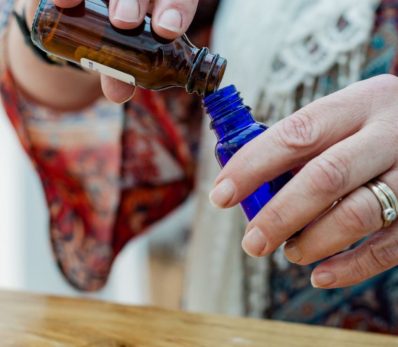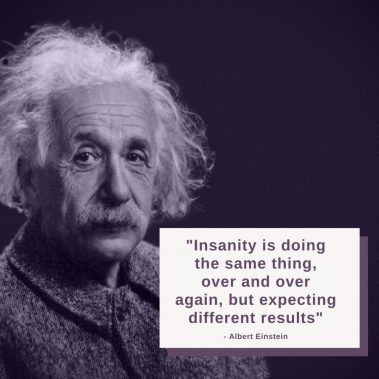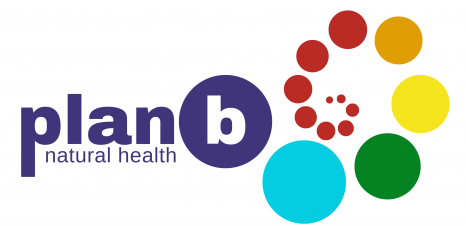Homeopathy
Homeo = similar / same
Pathy = suffering / dis-ease
What is Homeopathy?
Homeopathy is a system of natural medicine founded by respected German medic, Dr Samuel Hahnemann, in 1796. Hahnemann was visionary, and only recently, have researchers been able to explain how - not if - Homeopathy works.
Homeopathy is used by over 200 million people globally for first aid, acute, chronic and degenerative conditions. It is used by the UK Royal Family, celebs and sports people, so why is it not promoted for the general public?
The main reason is commercial medicine's stranglehold on the 'healthcare' market. Given the minimal doses of the originating substance used in homeopathic remedies, medical research says it's much ado about nothing, and that it's pure placebo. The media is heavily sponsored by drug companies, and sticks to the party line. My response to the sceptics is to say that there are two elements to the Minimum Dose principle - dilution + succussion (see more on this below).
If it is much ado about nothing, then why do babies and animals respond so well to Homeopathy? A common reply is that there's no evidence, which is categorically wrong. There is ample evidence, and which often outperforms conventional medical trials. Did you know that medical science has it's own name for homeopathy ? Nanoparticles and/or micro-doses. Quantum physics is enabling researchers to explain how homeopathy works. That's how visionary Hahnemann was.
Homeopathic remedies gently stimulate your body to heal itself. When we cut ourselves, the body knows what to do, we just help it along the way with cleansing and dressings. Remedies act like a catalyst, or the key in the ignition of a vehicle, to help your body do what it knows to do, and overcome it's current obstacle to health.
Homeopathy treats the whole person rather than just the parts that don't work. There is no specialist for this or that, just a skilled Homeopath perceiving your symptoms as messages from your body, versus being the problem itself. There is no one size fits all. Your symptoms are unique to you, despite others who present with the same named condition. Often, homeopathic treatment offers a longer term solution vs the quick (but temporary) fix offered by conventional medication, by identifying and addressing the root cause of those symptoms.
Having evaluated your case, I prescribe remedies that are proven to produce - in healthy people - symptoms "similar" to those experienced by you. SIMILARITY is the cornerstone of Homeopathy. For more on the three Principles of Homeopathy, see below.

Just one drop is all it takes ...
Homeopathy: medicine for the 21st Century
Medical science is the study of pathology - identifying the pathogen (disease-causing agent) - and treatments to thwart or control that pathogen, using increasingly powerful drugs and invasive procedures. Homeopathy is gentle and adaptable, and involves looking at dis-ease and symptoms in a different way, and identifying any underlying causes. The concept of Homeopathy was known in the days of Paracelsus but it was Dr Hahnemann, that tested and formulated the system practised today. His findings over 200 years ago are as relevant - and effective - today as they were then. I think the effectiveness of a medicine should be judged by how frequently it needs to be repeated. Don't you?
Is it safe?
Homeopathic remedies contain minimal amounts of the original substance which are then 'potentised', i.e. diluted and succussed. This process captures the energetic imprint of the originating substance - as opposed to material doses - which ensures they are safe for all ages. That is not to say remedies are devoid of effects and is why it is recommended that you work with a qualified and experienced Homeopath to help you on your journey to wellness.
Indeed, many patients use Homeopathy to minimise side effects of their conventional medication. Homeopathy was recently accepted as a viable alternative to conventional medicine by the House of Lords Committee for Complementary Medicines. Homeopathy has been integrated into the Swiss public health programme. For research updates, sign up for my blog and newsletter updates.
How Homeopathy can help you
Homeopathy treats you – as opposed to just the symptoms or condition you’ve been diagnosed with. Perhaps you're struggling with sleeplessness, hormonal, mental health problems or fatigue. Or perhaps you want an MOT to keep you in top health over the coming months? Maybe you're worried about the medication you're on and want to manage your health differently. Or, as was the case with me, you’ve been told to live with your chronic health problem.
If you're wondering whether there's another way, you've come to the right place! That was how I found Homeopathy, and I'm so glad I did. I haven't had to take medication for over two decades. Here's a brief list of some of the symptoms I've helped people with over the years.
It's time to do it differently.
Plan B Natural Health. Because Plan A doesn't always work.
First do no harm...
The origin of this phrase is uncertain, but is believed to be included in one or more versions of the Hippocratic Oath, and sworn to by all medics. It is the cornerstone of Homeopathy. Hahnemann had become disillusioned with the methods of the day (blood letting and mercury poisonings). While translating herbalist texts, he learned that Peruvian Bark can produce malaria-like symptoms in people. His enquiring mind wondered if lower doses could help heal his malaria patients. He trialled his idea on himself, then healthy people, before treating his patients (the provings). And the rest is history! Homeopathic remedies help the body heal itself, with remedies that are catalysts in that process. The word 'Homeopathy' translates to 'similar suffering') and is based on an idea developed by Paracelsus in the 1500s. Paracelsus wrote that a disease should be named by that which cures it. Hahnemann's Homeopathy has only 3 Principles which remain unchanged: what worked then, works now.
Principle 1: Similarity
The guiding principle of Homeopathy is SIMILARITY. The word 'Homeo-pathy' translates to 'similar-suffering', i.e. a little of what makes you sick, makes you well, or treating 'like with like'. Immunisation, the injection of a substance to encourage an antibody response, goes some way to help explain this principle, but homeopathic remedies are not generally injected, but rather dissolved under the tongue. Remedies are made from just about anything: flowers, plants, minerals, animal venom and stings (which are sourced ethically and in minimal amounts). In fact, a remedy can be made of just about any substance you can imagine to help restore a state of equilibrium (homeostasis). The indicated remedy acts like a key in the ignition: giving your body what it needs to overcome its current obstacle to health, and continue its work to keep you well, 24/7, 365 days a year. Remember: even with a serious illness, your body always works in your best interest, to optimise your health.
Principle 2: Individuality
One size does not fit all! You are unique and so are your symptoms and experience of an illness. Symptoms are seen as a messenger from the body, rather than the problem itself and the patient and their personality is as important as the condition they present with. Remedies have 'pictures', or, put another way, clinical indications for use on physical, mental and emotional level, accumulated over more than 200 years. An example is anxiety: Patient A is better for company; Patient B is better being alone. Patient A is better for rest; Patient B is restless and likes to be busy. Patient A maybe chilly and find it hard to warm up; Patient B is always better for being outside and having the window open. These differences lead to the indicated remedy being chosen for that patient at that time and is what gives Homeopathy its edge. Remedies have the scope to help a person's unique symptoms through the principles of similarity and individuality.
Principle 3: Minimum Dose
This is the Principle that confounds medical science and the general public, as the media echoes that sentiment. Minimum dose comprises two elements: DILUTION and SUCUSSION. Tiny amounts of the originating substance are used to create remedies which are then shaken vigorously to release their vitality and therapeutic action. This changes the substance's molecular structure and renders the remedy safe with negligible side effects. As such, remedies are safe for all the family to use. Research is proving that it is not a case of IF Homeopathy works; but more HOW it works, and gold standard randomised controlled trials continue, with the explanation being found in quantum physics. The impressive body of evidence is increasing as to its efficacy in many conditions and alongside conventional treatment modalities. I believe that integrated health is the way forward: that medical science, while making huge strides in diagnostics, research and treatments - to include artificial intelligence and robotics - has maybe lost sight of the bigger picture and the integrated nature of the human body and mind.
The Law of Cure
The World Health Organization defines health as: 'a state of complete physical, mental and social well-being and not merely the absence of disease or infirmity.' From this viewpoint, it is arguable that people are increasingly unhealthy, living with chronic underlying conditions and reliant upon repeat medication. How many people do you know who are on no medication? Rewind 200 years ago, when Dr Hahnemann stated in Aphorism 1 of his Organon of Medicine, 'the physician's highest and only calling is to make the sick healthy, to cure, as it is called.'
In Aphorism 2, he continues 'the highest ideal of cure is the rapid, gentle and permanent restoration of health'
Dr Hering's Law of Cure (c. 1800) states that cure is achieved: (i) when the disease leaves the body from above to below; (ii) from within to the outside; (iii) from a vital organ to a lesser organ; and (iv) in reverse order.
People are living longer, but with epidemic levels of chronic and degenerative disease, medication and lowered quality of life. Something isn't right...
Germ Theory & Terrain Theory
A quick word about two very conflicting theories about health and disease. A theory is something that is accepted as fact until otherwise proven. The Germ Theory is being challenged by the continuing and extensive research undertaken into the microbiome, or gut. At around the same time as Louis Pasteur brought his Germ Theory to the world, another, less charismatic but excellent scientist - Antoine Bechamp - had consistently proven that microorganism activity was constantly present, despite and before the external 'germ' was introduced to the body. Bechamp called these microorganisms microzyma. His work suggested an internal change creates dis-ease - like a change in the soil that gives rise to a healthy or diseased plant - and that our food, lifestyle and environment were important factors in creating and maintaining health (or dis-ease). It has been written that Pasteur changed his mind to agree with Bechamp days before he died. I'll leave you to ponder on how different our perception of health and disease would be had medical science adopted and researched the Terrain Theory.

